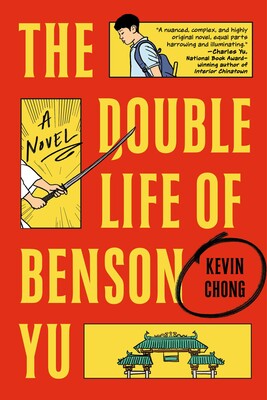
1.
As literary origin stories go, the one about how Haruki Murakami became a writer stands out in my memory. According to an account published in Jay Rubin’s Haruki Murakami and the Music of Words, it was during an afternoon baseball game in Tokyo in April 1978. Murakami was then 29 years old, and while he had vague literary aspirations, they had faded. Instead, he was absorbed with the operations of Peter Cat, the jazz club he owned: listening to music, preparing sandwiches, and making cocktails.
Murakami has told this story often. Each time, the author of Norwegian Wood and 1Q84 recounts the moment with the kind of granular detail usually displayed by survivors of catastrophic car accidents as they recall the final seconds before their lives changed. And in all his retellings, the Yakult Swallows were playing the Hiroshima Carps, and Murakami was sitting in the outfield stands, drinking beer. The rest I’ll block-quote:
The Swallows’ first batter was an American, Dave Hilton. You’ve probably never heard of him. He never made a name for himself in the States, so he came to play ball in Japan. I’m pretty sure he was the leading hitter that year. Anyhow, he sent the first ball pitched to him that day into left field for a double. And that’s when the idea struck me: I could write a novel.
After the game, Murakami bought some pen and paper from a nearby stationery store and began working on what would become his first novel, Hear the Wind Sing.
Maybe the “twist” I came up with shouldn’t have been so surprising.I remember reading a version of this anecdote in a New Yorker profile in the 90s when I was an MFA student at Columbia University, and being immediately intrigued. Later on, I would decide that the anecdote crystallized the signature ingredients of Murakami’s fiction, give or take a missing cat: Americana reflected, funhouse style, via Japan, the uncanny emerging from the quotidian, the casual voice.
As I’ve gotten older, however, Murakami’s story feels different to me. Now it reads like a warning that I ignored. No matter what you’re doing, no matter how much fun you’re having, and no matter how many loved ones surround you, the novel will come for you. Major plot points will arrive when you’re not suspecting them. At a baseball game, if you’re lucky. While you’re trying to answer a question about pedagogy at a job interview for a tenure-track teaching position, if you’re not.
In my experience, what I’ll call a “surprise”—I’ve heard others describe it as an “epiphany” or a “rupture”—is like a dam breaking. The pressure has been building. It could be the pressure of one’s own making—the teeth-gnashing frustration of a creative impasse. It could be an external pressure, like a deadline from an editor. Regardless of where it originates, that pressure builds as you fruitlessly hunch over your notebook page or laptop screen for hours. It builds further when you decide “spontaneously” to take the afternoon off to watch a movie—almost daring that surprise to find you.
In the best-case scenario, when it finally comes, the surprise will usher in relief. A simple, elegant solution to your novel’s problem, or the perfect last line for it, has announced itself. You’ll wonder why you hadn’t arrived at this plot point earlier.
But anecdotal and lived experience has shown me that surprises are often ones you initially resist, if not outright ignore. I know novelists who have discovered that their story only started midway through a draft. Or that their protagonist should be female instead of male, non-white instead of white, or another character—a secondary character or one that doesn’t yet exist—altogether. These surprises can leave you like a bug-eyed Cassandra.
2.
I started my novel, The Double Life of Benson Yu, in the spring of 2020. As Covid-19 took hold in North America, my wife and I transitioned to remote work at our academic jobs. Our daughter’s preschool and daycare abruptly closed, so we alternated spending time with her in the morning and the afternoon. A couple of days a week, my teenage stepson, whose final year of high school had been trampled by the pandemic, would let his sister play his electronic drums or read a book of Norse myths with him, allowing me close to a full share of time to work and write.
In 2018, I’d published a novel with a Canadian indie press that, well, came and went without much notice. Because it was a contemporary retelling of Albert Camus’ The Plague, however, that book suddenly acquired currency. That spring, I gave interviews for it and wrote essays inspired by it. Suddenly, I had written a book that was “prophetic.” I had unwittingly anticipated the “surprise” of lockdown and Covid-19.
At the time, a lot of writer friends were feeling bad on social media about being too anxious to write. For me, productivity was a kind of game I played to assuage my own anxiety and feeling of uncertainty. In the evening before bed, I would enjoy an iPad version of a board game about farming called Agricola.
Like another popular German board game, Settlers of Catan, the genre of the game is “resource management” or “worker placement.” Doesn’t sound like much fun, does it? But I would play it every night for at least an hour before bedtime, winning against my AI opponents 90 percent of the time.
It was with the same obsessiveness that I began my novel. I had the first few plot points of the story mapped out. A boy named Benny living with his grandmother in a Chinatown housing project is left on his own after his grandmother falls. He is helped by a strange white man named Constantine who believes himself to be a samurai reincarnated in an ill-suited body. At some point, halfway through the book, he would need to be sent to live with his estranged father. That’s all I had planned.
I desperately needed to write this book. I needed to create my own private space in my crowded, locked-down home. The routine of drafting a novel was my daytime equivalent of playing Agricola. I set about writing 500 words a day. Then 1000 words a day.
As I was getting to the hundred-page mark, I approached the precipice of the unknown—the part of the novel I had yet to plot. I still wanted Benny to be sent to his father, but who was the father going to be? How was he going to be as monstrous as I had set him up to be?
Then I had a surprise. It came to me after I had finished my work day and was getting ready to make dinner. I was sitting on the foot of my bed when I realized: the father was Benny himself!
I quickly jotted down this plot twist—one that turned my straightforward coming-of-age novel into a dark and twisty story-within-a-story—and filled a pot of water and set it to boil. It was my turn to prepare dinner. Like a Murakami character, I made penne in a pasticciati sauce.
3.
“Insights leave one stunned,” Charles Baxter once wrote in the essay collection Burning Down the House. “Sometimes the vision causes the world to fall away… but quite often the truth of things is so overpowering that one simply has nothing to do and nowhere to move.”
The surprise is only the plan you’ve made subconsciously.What do you do when a voice in your head tells you to completely reimagine your novel? There can be a temptation to ignore that voice, to appease it with easier fixes to your story. In my case, I dithered over my surprise for a couple of days before heeding that voice.
After I got over the shock of my story’s new direction and its serious implications on the material I’d already written, I realized that maybe the “twist” I came up with shouldn’t have been so surprising. After all, two of my previous novels had an element of metafiction in them. And I had been taken by novels like Susan Choi’s Trust Exercise and Iain Reid’s I’m Thinking Of Ending Things—both books in which the narrative is destabilized as a commentary on storytelling as reality-making.
In my experience, a surprise never comes without advance warning. A surprise might catch you in the moment, drinking beer at the baseball game. But in hindsight, the surprise is only the plan you’ve made subconsciously, in your dreams, surfacing to revise the outline you’ve made in waking life.
To be honest, I’ve been stuck in the middle of my current work-in-progress for over six months. I’d welcome a surprise anytime now to break me out of my rut. But I know that a surprise only comes in moments when one has at least one foot in their manuscript, while being focused on something outside of their own work.
It’s like when romantically coupled people tell their single friends about how they found true love when they were least looking for it. It’s an unkind observation, and at least partially a lie. Even when the thing you most crave appears from left field, you’ve been looking for it the whole time.
__________________________________

The Double Life of Benson Yu by Kevin Chong is available from Atria Books, an imprint of Simon and Schuster.
